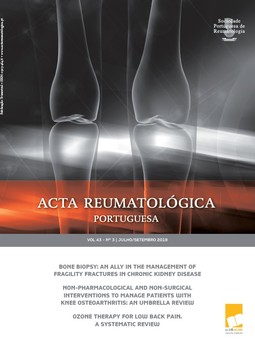Bone biopsy: an ally in the management of fragility fractures in chronic kidney disease
Authors
Francisca Aguiar; Catarina Meng ; Luciano Pereira; Iva Brito; João Miguel Frazão;
Patients with chronic kidney disease (CKD) have an increased susceptibility to fracture and this risk gradually rises as renal disease progresses. Chronic Kidney Disease–Mineral and Bone Disorder (CKD- MBD) encompasses the mineral, bone, hormonal and calcific cardiovascular abnormalities that develop in these patients. Renal osteodystrophy (ROD) corresponds to the histopathologic description of bone lesions associated with CKD-MBD. Fragility fracture approach in CKD stages 1-3a may be similar to that of the general population. However, in stages 3b–5, osteoporosis cannot be established by the World Health Organization (WHO) criteria based on bone mineral density (BMD) or the presence of fragility fractures, because low BMD and fractures can also occur in the different forms of ROD. The gold standard for the diagnosis and classification of ROD is tetracycline double-labelled transiliac bone biopsy, with bone histology and histomorphometric analysis. By informing on bone turnover, mineralization and volume, it is a valuable tool that may help guide the management of CKD patients with fragility fractures, as therapeutic measures are distinct depending if the patient has osteoporosis or one of the forms of ROD.
For patients with stages 1–3 CKD, without biochemical abnormalities suggestive of CKD-MBD, who sustained low-trauma fractures, any therapeutic approved for use in osteoporosis could be used. However, there is little evidence for the efficacy and safety of conventional anti-osteoporotic agents in patients with more advanced CKD stages, so currently the approach is opinion-based and must be patient-tailored depending on the presence or absence of ROD.
Francisca Aguiar
Catarina Meng
Luciano Pereira
Iva Brito
João Miguel Frazão
Catarina Meng
Luciano Pereira
Iva Brito
João Miguel Frazão





